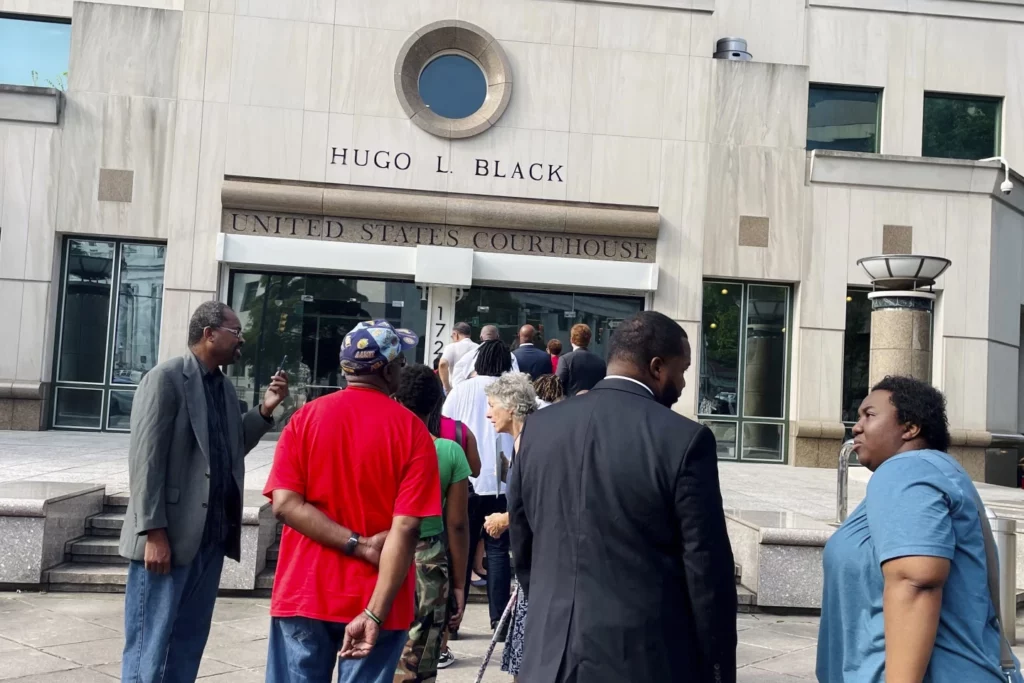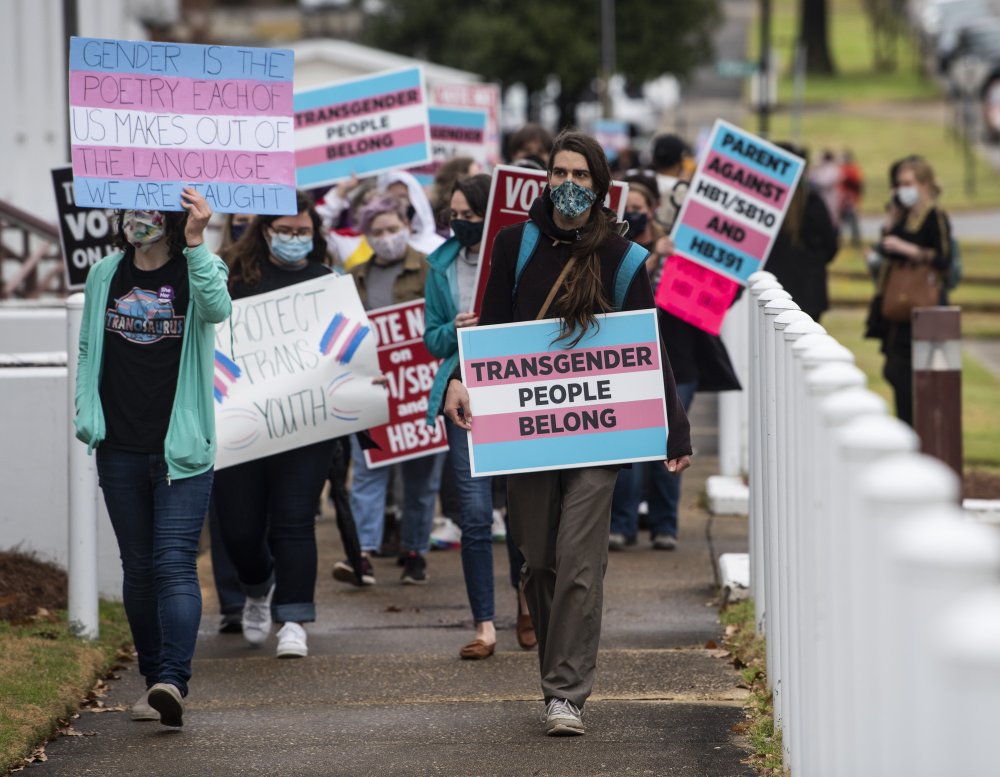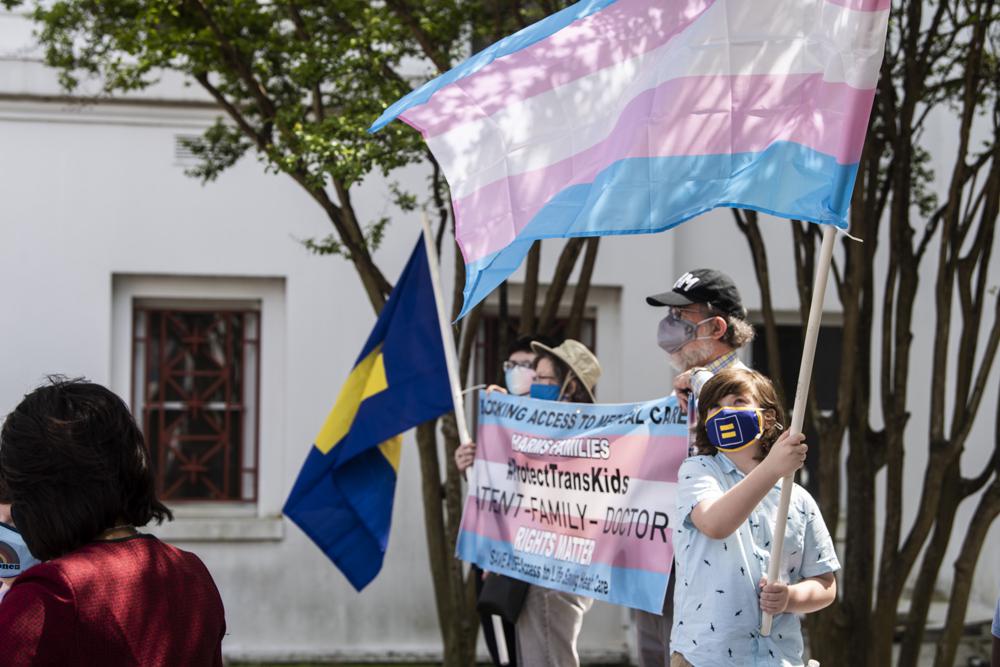Alabama civil asset forfeiture law and process upheld by SCOTUS

Attorney General Steve Marshall applauded the U.S. Supreme Court’s 6-3 opinion protecting the traditional law enforcement power to seize contraband and the proceeds and instrumentalities of crime. Alabama Solicitor General Edmund LaCour argued the case Culley v. Marshall in the Supreme Court on October 30, 2023. In a statement, Marshall said, “The U.S. Supreme Court affirmed our previous victories in these cases. Law enforcement officers across Alabama work hard every day to keep their fellow citizens safe while respecting their constitutional rights. And the Court confirmed that those rights were respected.” The two plaintiffs had each loaned their cars to men who were stopped and arrested when Alabama police found controlled substances in their cars. According to court documents, “The State of Alabama filed a forfeiture complaint against Halina Culley’s car on February 27, 2019, just 10 days after the seizure of the car. But Culley waited six months before answering that complaint. And she waited another year—until September 21, 2020—before raising an innocent owner defense in a motion for summary judgment. Soon thereafter, on October 30, 2020, an Alabama state court granted Culley’s motion and ordered the return of her car. Lena Sutton similarly moved slowly in her forfeiture proceeding. Alabama brought a forfeiture case against Sutton’s car on March 6, 2019, just 13 days after the seizure of the car. Sutton initially failed to appear in the case, causing the state court to enter a default judgment for Alabama. Sutton later requested that the state court set aside that judgment, and the state court did so. Sutton then submitted a brief answer and served discovery requests on Alabama, but Sutton otherwise took no action until the state court set a date for the forfeiture trial. On April 10, 2020, three weeks before the scheduled trial date, Sutton finally moved for summary judgment on the ground that she was an innocent owner. Soon thereafter, on May 28, 2020, the state court granted her motion, and she recovered her car” The Attorney General’s office noted, that under Alabama law, “vehicles used to facilitate the transportation of controlled substances may be forfeited upon proper process. But if the owner of a seized vehicle is found to be innocent at a hearing, the property is returned. In these cases, the plaintiffs had access to the full protections of the judicial system within days. Still, they claimed a constitutional right to yet another hearing, which Alabama argued ‘would interfere with important law-enforcement activities” and risk property being “removed, destroyed, or put to illegal use.’ Justice Brett Kavanaugh’s majority opinion agreed with Alabama’s understanding of the Due Process Clause and affirmed the decision of the U.S. Court of Appeals for the Eleventh Circuit, dismissing the case.” In his statement, Marshall thanked the team who successfully litigated these cases from the district court to the Supreme Court, including Solicitor General Edmund LaCour, Deputy Solicitor General Robert Overing, Assistant Chief Deputy Attorney General Brad Chynoweth, and Assistant Attorney General Brenton Smith.
Federal judges review Alabama’s new congressional map, lack of 2nd majority-Black district

Federal judges reviewing Alabama’s new congressional map on Monday sharply questioned if state lawmakers ignored the court’s directive to create a second-majority Black district, so minority voters have a fair opportunity to influence elections. The three-judge panel held a hearing as they weigh whether to let the map stand or to step in and draw new congressional districts for the state. The panel heard arguments Monday but did not indicate when it would rule. Alabama was forced to draw new district lines after the U.S. Supreme Court, in a surprise June decision, upheld the panel’s earlier finding that the state’s then-map — which had just one Black-majority district out of seven in a state where more than one in four residents is Black — likely violated the federal Voting Rights Act. Lawyers for voters in the case argued Monday that the new plan, which maintains one majority-Black district, still discriminates against Black voters. They said it flouts the panel’s 2022 finding that Alabama should have two districts where Black voters comprise a majority or “something quite close to it.” All three judges pointedly asked the state’s lawyer whether Alabama had ignored their finding that the state should have a second district where Black voters have an opportunity to elect their preferred candidates. Judge Judge Terry F. Moorer asked if Alabama had chosen to “deliberately disregard” the court’s instruction. Judge Stan Marcus asked the state, “Were you not required to draw a new map (that provides a reasonable) opportunity (district for Black voters)?” Edmund LaCour, Alabama’s solicitor general, said the redrawn map was as “close as you get” to creating a second majority-Black district without violating the U.S. Constitution or traditional redistricting criteria. “I think it is close as you get without violating the Constitution,” LaCour said. LaCour accused the plaintiffs of seeking a “racial gerrymander” over traditional guidelines for drawing districts, such as keeping districts compact and keeping communities of interest together. Abha Khanna, an attorney representing one group of plaintiffs in the case, said Alabama chose “defiance over compliance.” “Alabama has chosen instead to thumb its nose at this court and to thumb its nose at the nation’s highest court and to thumb its nose at its own Black citizens,” Khanna said. Khanna said Alabama essentially changed nothing for Black voters by passing a map that maintained a single majority-Black district. White voters will continue to Alabama Republicans, who have been reluctant to create a Democratic-leaning district, boosted the percentage of Black voters in the majority-white 2nd Congressional District, now represented by Republican Rep. Barry Moore, from about 30% to 39.9%. State leaders are engaging in a high-stakes wager that the panel will accept their proposal or that the state will prevail in a second round of appeals to the Supreme Court which could again test the requirements of the Voting Rights Act. The panel in 2022 issued a preliminary injunction blocking the state’s then-map. During the court hearing, a judge asked the sides about next steps and whether they were starting anew in the review of the map. The high-stakes hearing drew a large number of spectators to the federal courthouse in Birmingham, where an overflow room was opened to accommodate the large crowd. Plaintiffs in the Supreme Court case attended, with many wearing T-shirts printed with their proposed map, which would have two majority-Black districts. Former U.S. Attorney General Eric Holder, chairman of the National Democratic Redistricting Committee, said in a statement that Alabama’s new map “denies Black Alabamians their lawfully protected rights.” “Alabama’s latest congressional map is a continuation of the state’s sordid history of defying court orders intended to protect the rights of Black voters,” Holder said. Republished with the permission of The Associated Press.
Court hears arguments on Alabama trans youth treatment ban

Alabama asked an appellate court Friday to let the state outlaw the use of puberty blockers and hormones to treat transgender children — a move some parents argued violates their right to make decisions about their children’s health care. A three-judge panel of the 11th U.S Circuit Court of Appeals heard arguments in Alabama’s appeal of a preliminary injunction blocking enforcement of the first-of-its-kind law that would make it a felony, punishable by up to 10 years in prison, to give the medications to assist transgender minors in their transition. The arguments in Alabama come three months after the 8th U.S. Circuit Court of Appeals agreed to keep similar Arkansas law on hold. The bans have become a flashpoint as Republican-controlled legislatures advanced bills to not only block medical treatment but also ban transgender children from using school restrooms or playing on sports teams that don’t correspond with their sex at birth. Jeff Doss, an attorney representing five parents and a pediatrician who challenged the law, urged the court to keep the ban on hold. He said the law is discriminatory, and Alabama took the “unprecedented” step of trying to criminalize the accepted standard of care for a medical condition. “If parental freedom means anything, it means that a parent, not the state, should decide whether their child receives life-saving medical intervention, consistent with the standard of care,” Doss said. Doss said after court that “it should be chilling for everyone” that the state is trying to tell parents, “we know best, and we are the ones who are going to make this decision for you parents.” Edmund LaCour, Alabama’s solicitor general, argued that the state has the authority to regulate medical treatments it deems risky. He disputed arguments that the law discriminated against transgender individuals because the drugs are still available to everyone, just not “to affect a cosmetic sex change” “The law does not prohibit any sort of therapy. It doesn’t require that males go by he or that girls wear dresses. All it does is target the risky treatments,” LaCour said. LaCour, at one point, asked judges to imagine if children wanted to use skin grafts, a treatment for severe burns, to change their race. Doing so would just be too risky, he argued. Multiple medical groups, including the American Academy of Pediatrics and the American Medical Association, oppose the ban. The U.S. Justice Department has also opposed the ban as unconstitutional. Fifteen states filed briefs supporting Alabama’s efforts to ban the treatments. The appellate judges did not indicate when they will rule. U.S. Circuit Judge Andrew Brasher, who was Alabama’s solicitor general before he was appointed to a federal judgeship, asked both sides if the law amounted to sex discrimination and if the state had other regulation options, short of an outright ban, if it was concerned about the possible overuse of the medications. Arkansas was the first state to enact such a treatment ban. A federal judge last year blocked the Arkansas law from going into effect, and the appellate court upheld the decision. A trial began last month in the lawsuit seeking to permanently strike down the ban. The Alabama law, dubbed the Vulnerable Child Compassion and Protection Act, went further in putting criminal penalties of people who provide the medications. U.S. District Judge Liles Burke in May issued a preliminary injunction to stop Alabama from enforcing the medication ban. Burke did not block a portion of the law banning sex-altering surgeries for minors, which doctors testified are not performed in Alabama. He also left in place a provision that requires counselors and other school officials to tell parents if a minor discloses that they think they are transgender. Alabama Gov. Kay Ivey at the time called Burke’s ruling blocking the medication ban a “temporary legal roadblock.” The trial in the ongoing litigation is expected next year, attorneys said. Republished with the permission of The Associated Press.
Trans people say Alabama license policy puts them at risk

Federal judges this week heard arguments in a challenge to Alabama’s policy requiring a transgender person to undergo full gender reassignment surgery to change the sex listed on their driver’s license. Gabriel Arkles, senior counsel at Transgender Legal Defense and Education Fund, told judges with the 11th U.S. Circuit Court of Appeals that Alabama is one of only a few states in the nation that require transgender residents to undergo genital surgery, “as a condition of getting a license that they can safely use — that is a license with a sex designation that accords with their identity and how they are known and perceived in their community.” Three transgender women in Alabama challenged the policy after being told their licenses must reflect they are men. U.S. District Judge Myron Thompson last year ruled that the policy is unconstitutional. The judge directed the state to give the plaintiffs new licenses “reflecting that they are women.” The state appealed, and attorneys said the state indicated it will rescind the licenses if the ruling is reversed. A three-judge panel of the 11th U.S. Circuit Court of Appeals heard the arguments Tuesday. People need identification to navigate daily life, Arkles said. Being forced to carry cards that don’t match their identity puts trans individuals at risk for discrimination, harassment, or even physical danger, groups representing the women said. “I know who I am. Transgender people know who we are; that’s not the issue,” Destiny Clark, a health care worker from Birmingham and one of the women who challenged the Alabama policy, said in a statement. “The issue is getting the state to recognize our existence and just let us live without intruding into our private medical records.” An attorney for the state argued the policy is not discriminatory because it gives a path for transgender individuals to change their gender marker. “These are law enforcement identification documents. That is why they have identifying information on them, including date of birth, height, weight, hair color, eye color, someone’s signature, and someone’s sex,” Edmund LaCour told the judicial panel during arguments. A ruling is not expected for several months. Republished with the permission of the Associated Press.


